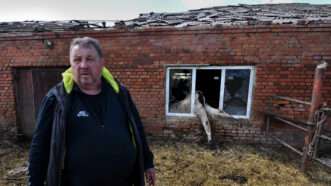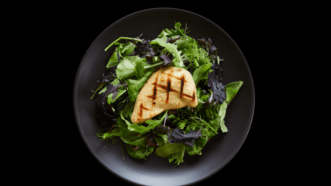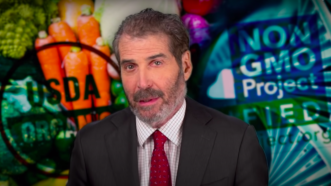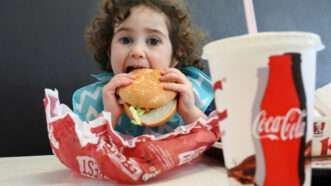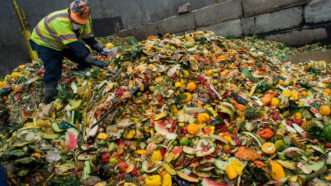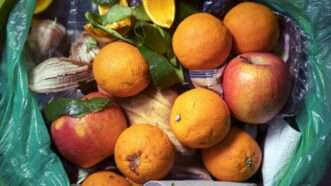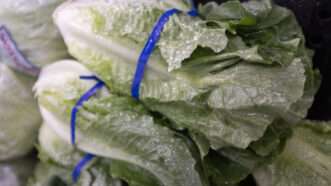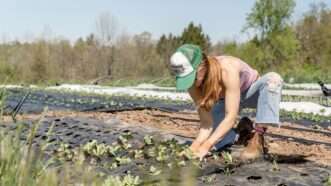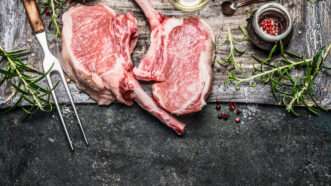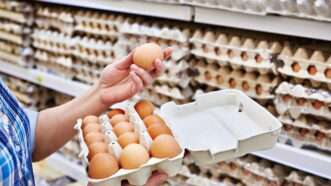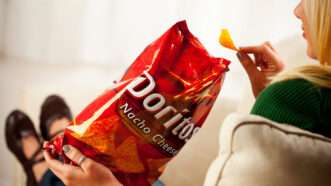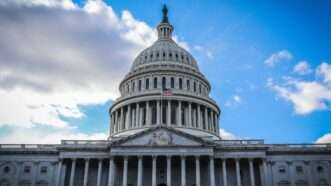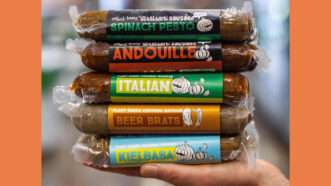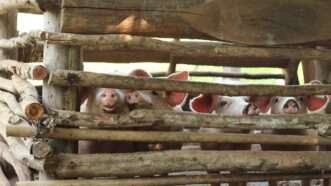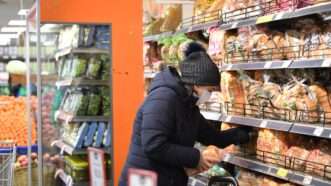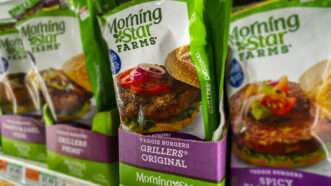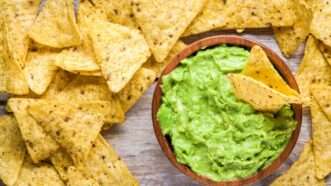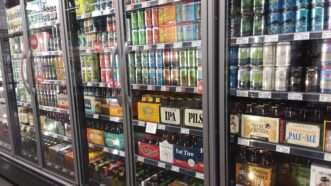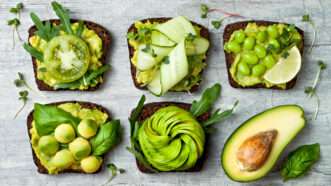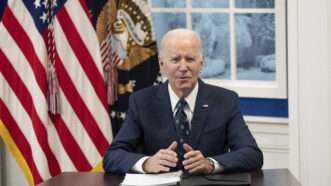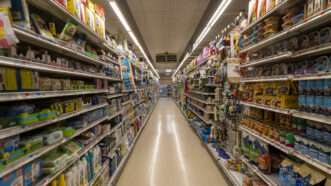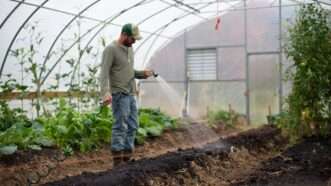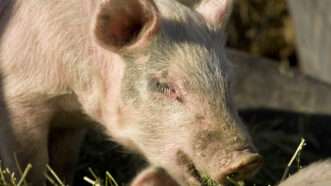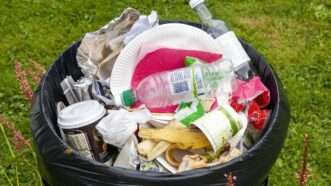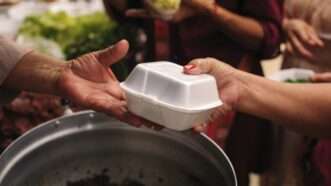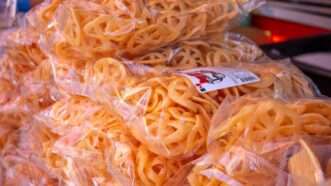Food
Do We Really Need the Federal Government To Tell Us What Milk Is?
Everybody knows what almond, oat, and soy milk are. We don’t need the FDA’s intervention, no matter what the dairy lobby claims.
New York City Sued Over Illegal Foie Gras Ban
Hudson Valley foie gras producers are not taking New York City's guff sitting down.
A Maine Couple Is Suing the State for the Right To Hunt on Sundays
The Parkers filed their lawsuit under Maine’s new ‘right-to-food’ constitutional amendment.
A Plague of Policymakers Returns Hunger to the World
Lockdowns, trade disputes, and warfare make the next meal once again a matter of concern.
The Slaughter-Free Future of Cultured Meats
Real factories are beginning to replace factory farms.
Britain Finally Relaxes GMO Rules, but Advocates Want More Deregulation
New GMO rules are a good break from the E.U., but they don't go far enough.
FDA Will Ease Enforcement of Baby Formula Regulations To Address Shortage
Plus: Supreme Court sides with Ted Cruz in campaign finance case, gender quota for corporate boards ruled unconstitutional, and more...
America's Families Still Revile USDA-Funded School Lunches
The central planning of America's public school lunch menus has been a disaster.
How Bad Government Policy is Fueling the Infant Formula Shortage
Trade restrictions and over-zealous FDA regulation are a big part of the problem, but there's more.
GMOs Are Good for Us
The activists who say otherwise are wrong on the costs and wrong on the science.
NYC Mayor Defends Decision To Handcuff and Strip Search Woman Selling Mangos on a Subway Platform
Maria Falcon doesn't have a business license. So New York police officers detained her and confiscated all of her merchandise.
Yet Another Study Blames Food Companies for Parental Choices
Food companies don't determine what parents put in their shopping carts.
California's New Food Waste Law Is Backfiring
Compliance is proving to be expensive and confusing.
New Investigation Finds FDA's Food Side Is 'Broken'
Among experts on food safety, the consensus is that the FDA's food division isn't functional.
Innovation Can Bring Food Prices Back Down to Earth
In time, demand for poop and ash may offset the fertilizer crunch.
SCOTUS Could (and Should) Strike Down California's Animal-Rights Law
Proposition 12 threatens the national food economy.
California's Terrible Price-Gouging Law Puts Markets at Mercy of Ambitious Prosecutors
Higher egg prices are not a crisis in the middle of a pandemic full of supply problems.
Does Boston's Mayor Hate the City's Restaurants?
Boston Mayor Michelle Wu seems hellbent on making things difficult or impossible for city restaurants.
A High School Banned Students From Selling Snacks. Predictably, a Black Market for Snacks Emerged.
A sociologist spent 112 days tracking students' illicit deals for chips and other goodies.
Blame Insane Government Spending for Inflation
Some want to solve the problem with subsidies for gas, housing, child care, and more. That only risks greater stagnation.
Veggie 'Meat' Maker Tofurky Wins Free Speech Challenge to Food-Labeling Law
Plus: Meta's campaign to smear TikTok, new research on immigrants and welfare, and more...
Maintaining Biofuel Mandates Worsens Global Food Crisis Caused By Russia's Invasion of Ukraine
Turning food into fuel has always been a dubious proposition.
Supreme Court Takes Up California's Attempt To Control How Other States' Farmers Treat Pigs
Do California's rules violate the dormant commerce clause?
Connecticut Should Let Small Farmers Slaughter Their Rabbits on Their Farms
A cost-efficient and humane method for processing rabbit meat is preferable to the state's current system.
Got Roadkill? Now There's an App for That
Wyoming is now encouraging drivers to report roadkill casualties for harvesting.
Russia's Invasion of Ukraine Threatens Further Hikes in Food Prices
Among his other crimes, Putin’s war increases the suffering of the world’s poor and hungry.
The Fake-Meat Revolution Has Stalled
Consumer trends suggest a meatless near future is increasingly unlikely.
Trade Restrictions on Oysters Get Shucked
After more than a decade on ice, trade in shellfish between the European Union and the United States is about to pick up steam.
How Drug Cartels and Federal Import Restrictions May Cancel Your Guacamole Plans
Almost all of America’s avocados come from a single Mexican state. A threatening message threw it into disarray.
Study: Seattle's Soda Tax Has Been Great for…Beer Sales?
The substitution effect is real.
More Non-Meat Choices Are Better Than Meat Taxes or Bans
More choice can decrease meat consumption without coercion of regressive taxation.
It's Time for New York City To Scrap Its Cap on Street-Food Permits
Despite shifting enforcement away from cops, NYC is still ticketing the dickens out of New York's street-food sellers.
The FDA Finally Liberates French Dressing from 72-Year-Old Ingredient Mandates
Why? A better question was why they were ever involved in the first place.
Biden's Plan To Address Meat-Price Inflation Ignores That Federal Intervention Caused the Problem
The president can't fix a problem he doesn't understand.
Mandatory GMO Disclosure Doesn't Sway Shopping Habits (But Will Drive Up Costs)
Plus: Questioning paranoia about smartphones and attention spans, new small business creation is thriving, and more...
Food Costs Likely To Rise as Farmers' Expenses Shoot Up
Bad policy and unpredictable nature are sending food prices through the roof.
Animal-Rights Laws Are Coming Back To Bite California and Massachusetts Voters
State food laws shouldn't apply to producers and consumers across state lines.
Cities Undermine the Holiday Spirit with Unconstitutional Bans on Sharing Food with the Homeless
Do you, like many Americans, feel especially charitable this time of year? Enjoy helping those in need? Better buy a permit.
California Promised Street Vendors More Freedom. Instead They Got More Rules.
The state’s “reforms” have saddled merchants with oppressively expensive permitting demands.
Newark's Scrooges Want To Ban Giving Food to Homeless People
Donating to the needy, in addition to being a generally nice thing to do, is a protected First Amendment activity.
The Great Libertarian Gift Guide of 2021
It's time to spread cheer. Reason is here to help.
Mexico's 'Junk Food' Warning Labels Are Junk
Government mandates have not resulted in a drop in sales of unhealthy snacks.





